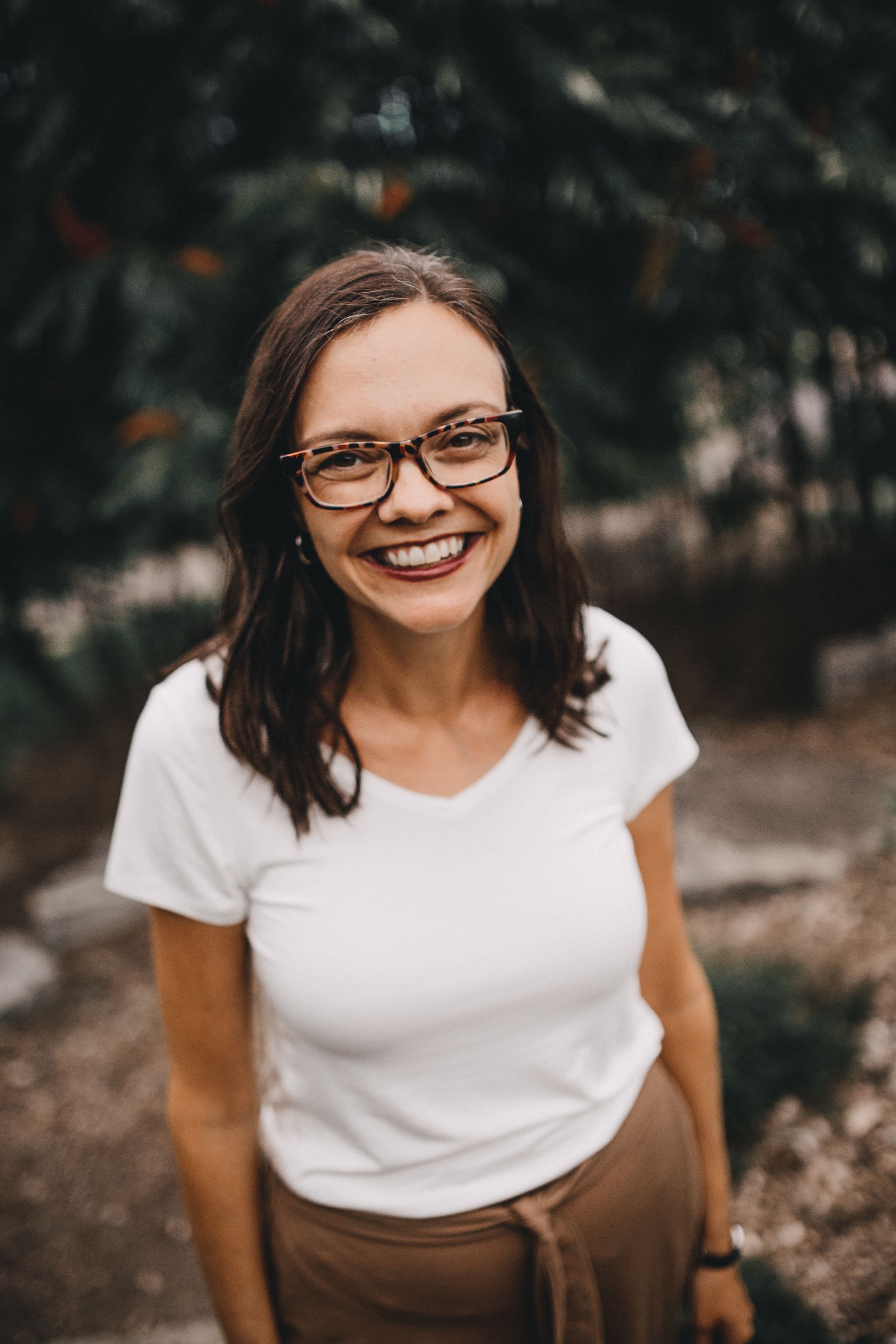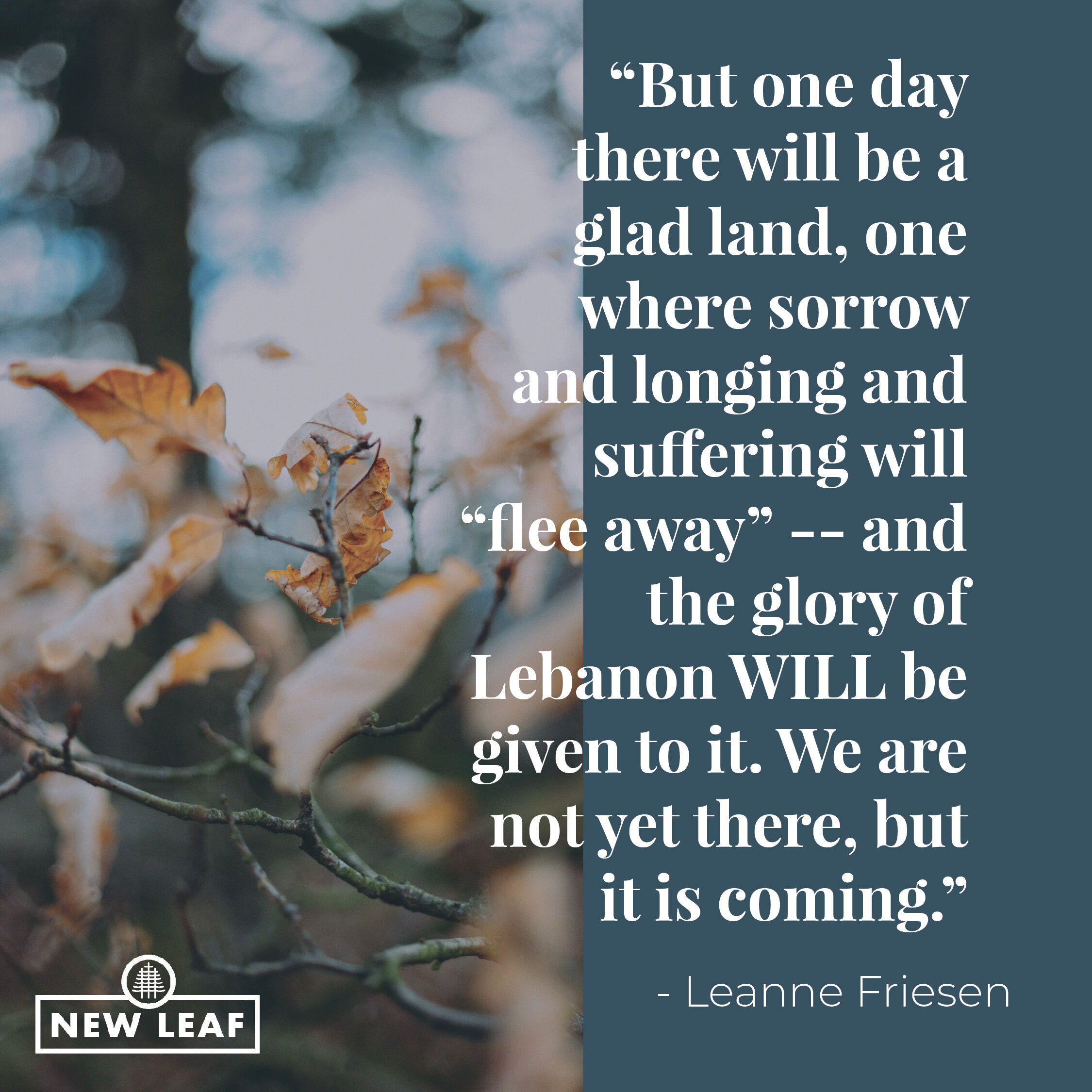Third Sunday of Advent 2019
Scripture reading for today:
Isaiah 35:1-10, Psalm 146:5-10, Luke 1:46b-55, James 5:7-10, Matthew 11:2-11
The Redeemed of the Lord Shall Return…
Today, as I read Isaiah 35, I thought of a few things. I found myself remembering the actions of an old Sunday School song we used to sing using the words of these verses – miming putting a crown on our heads, making motions of sweeping as we talked about sadness and joy fleeing away, and giggling as we would sweep our hands towards the friends around us, turning the song into a game. But what did I understand as a child about what it meant for the redeemed to return? What did I know about how much more difficult joy could seem than it did in those days when we howled with delight as friends swept their hands in front of our faces?
And I thought about Lebanon.
Three years ago I had the opportunity to visit that beautiful country and see the work that my denomination is doing among Syrian refugees there. It was stunning and beautiful and complicated. Currently in Lebanon, a small country less than the size of most Canadian provinces, the population of refugees to Lebanese citizens is around one to one. There are literally millions of refugees. There are refugee camps all around the country. Desperate children beg on the streets.
It’s hard for me to read the word “Lebanon,” a country with so long a history that it is mentioned often in the Bible, without flashing back to what I experienced there. Today, I remembered what may have seemed like a relatively simple interaction.
We had just finished eating at a fast food restaurant in Beirut, after having visited a local mission to refugees in the city. Parking is difficult in the city, so even fast food restaurants often provide a valet. As we waited for our hosts’ car to be returned, a young man helping with parking heard us mention Canada. He was in his twenties, was dressed in clean clothes, could speak English. But he was a refugee, and when he heard us mention Canada, he came to me, grabbed my hands, and, pleadingly asked: “Can you take me to Canada?”
We talked more. His brother had already been settled in Vancouver. He was in the middle of a partnership that looked like it might help him settle in Ontario, but the process was long. “Are they close?” he asked me, “Will I be near my brother?” I didn’t know if I should even tell him. “Well, it is quite far,” I finally said. “Several days drive.”
“Days???” he asked me, stunned, tears welling up in his eyes. He had not realized Canada was so big.
“Yes,” I said. “Or you could take a plane.”
It was like I had punched him in the stomach.
We had to leave. I said I would pray for him. He walked away, shoulders sagging. My hosts said not to focus on it too much — this happened every day, to every tourist. And look how much better he was doing than most refugees! Most couldn’t work in Lebanon at all. He had found a way to survive.
But I have thought about him ever since, often. I think of a guy a lot like me, who didn’t “look” like a refugee, who longed for a new land. Who longed for a home. Who wanted it badly enough to beg a stranger on the street to help him. I wonder if he has seen his brother.
Lebanon is overwhelmed with the needs of so many refugees. Besides the long history of tension between Syria and Lebanon, such a large number of people entering the country are hard to support. The structure is not designed to make it easy for refugees to make a home there. It is illegal to work. Illegal to become a citizen. Kids can’t go to school. The “glory of Lebanon” is not a reality for many of those who came there seeking refuge. The Church has a huge tasks as it tries to care for the millions brought to their doorstep.
But one day there will be a glad land, one where sorrow and longing and suffering will “flee away” — and the glory of Lebanon WILL be given to it. We are not yet there, but it is coming.
Until then, like a man working on the streets of a foreign country hoping for more, we cry to God: “Can you take me there?”
And we wait.



